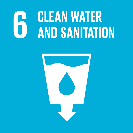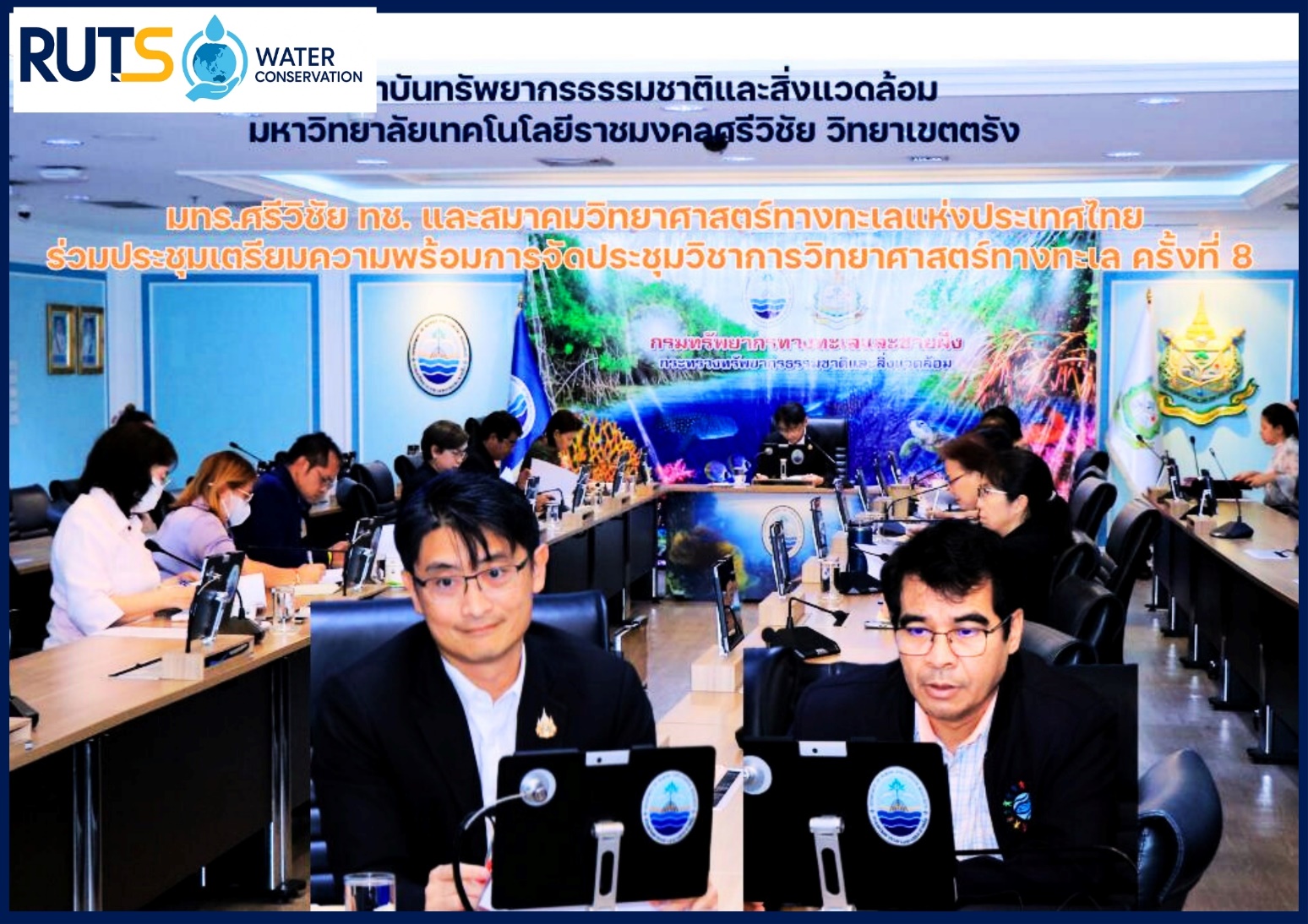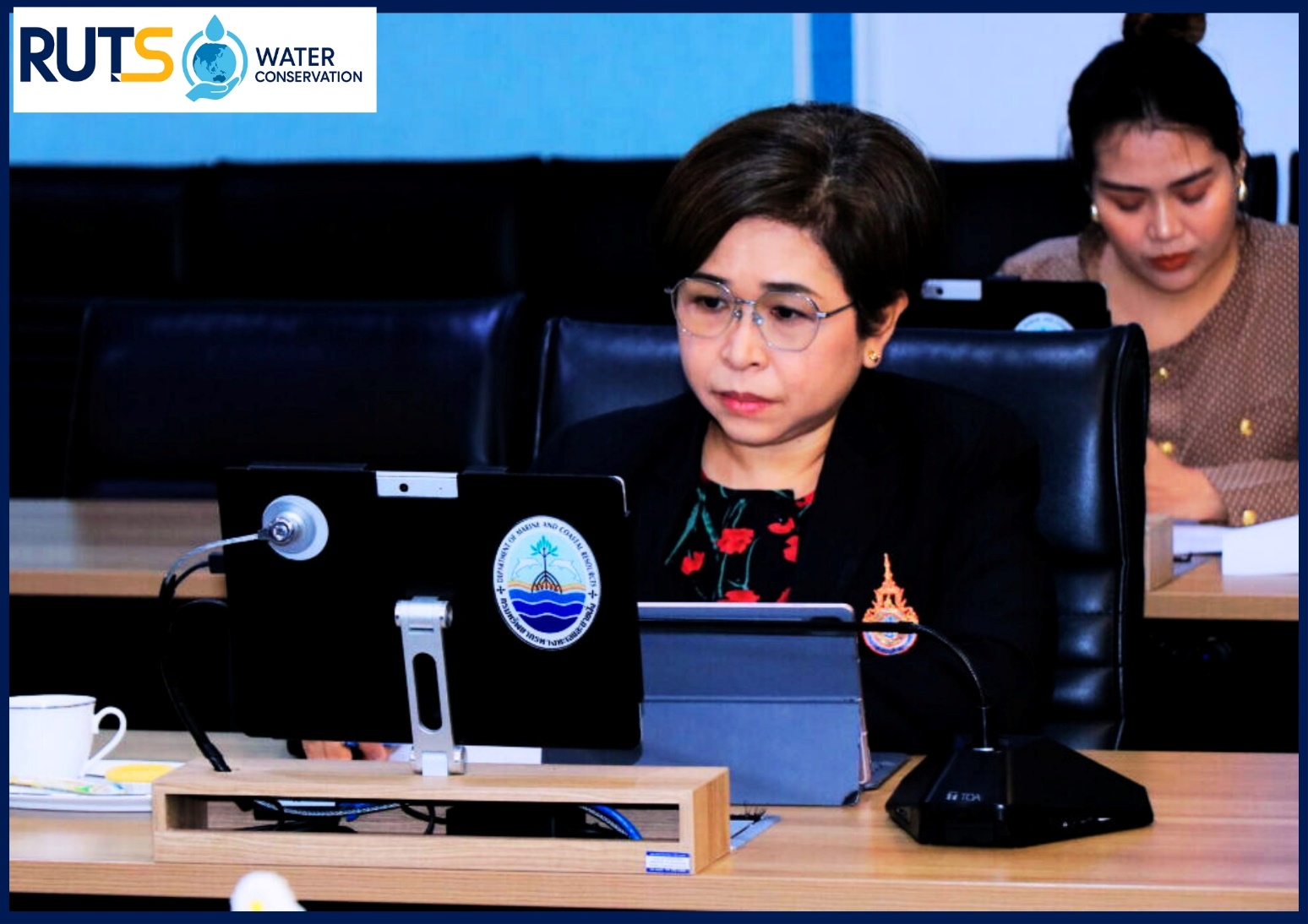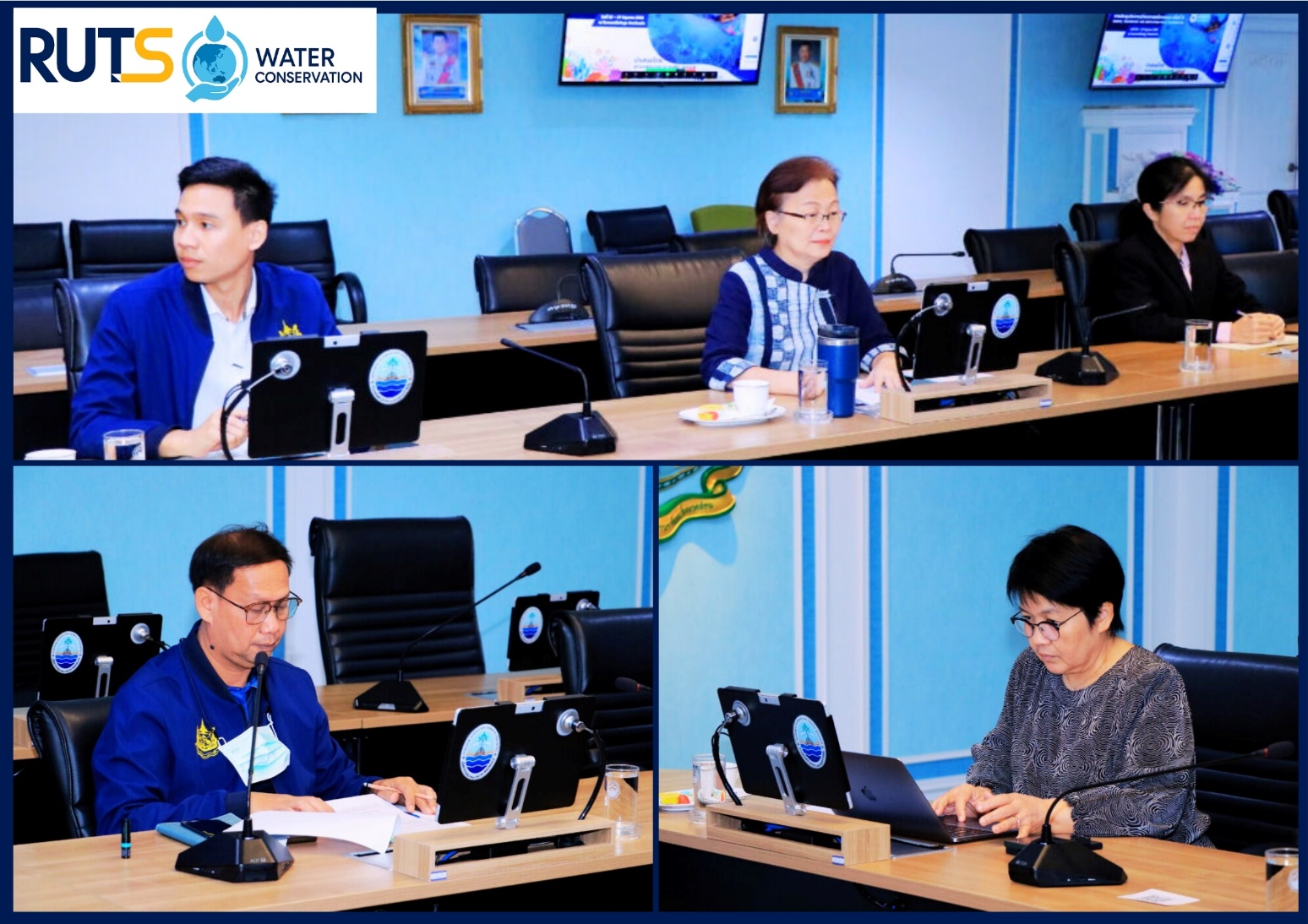Reporters: Mr. Sujinda Saehan, Mr. Ekkajak Intarat, Mr. Nitigon Jumniansuk, Mr. Thanet Sangseejun
Evidence Date: October 22nd, 2024
Related SDGs: 
Related Indicators: 6.5.1, 6.5.3, 6.5.5, 6.5.6, 6.5.7
Details:
On October 22, 2024, a crucial preparatory meeting for the 8th Marine Science Conference was held at the Department of Marine and Coastal Resources (DMCR), chaired by Dr. Pinsak Suraswadi, Director-General of DMCR. This meeting brought together key figures from Rajamangala University of Technology Srivijaya (RUTS), led by Assistant Professor Dr. Prasert Thongnoonuy, Director of the Institute of Natural Resources and Environment, and Assistant Professor Dr. Woraporn Tharangkurn, Deputy Director. Researchers, experts, and stakeholders from various agencies also participated in this discussion, aimed at finalizing plans for the conference scheduled to take place from June 25–27, 2025, at the Rue Ratchada Hotel in Trang Province.

The theme of the conference, “Science, Technology, and Innovation for a Changing Sea,” reflects the growing need for scientific solutions to the challenges facing marine environments. The conference is organized in collaboration between RUTS and the DMCR, emphasizing the importance of addressing key issues related to marine ecosystems, climate change, and coastal management.
The preparatory meeting focused on several key aspects of the conference, including finalizing the conference logo, academic committees, funding sources, and logistical details. Special lectures will be delivered by national and international experts, with an exhibition and product booths showcasing cutting-edge research and innovations in marine science. The event will serve as a platform for sharing knowledge, fostering collaboration, and promoting sustainable practices for marine conservation.
The 8th Marine Science Conference holds significant relevance to Sustainable Development Goal 6 (SDG 6), which focuses on ensuring access to clean water and sanitation for all. The conference’s theme and discussions will likely explore a range of critical issues that directly contribute to the achievement of SDG 6, especially in the context of marine and coastal resource management. These include:
- Sustainable Water Use: The conference will highlight how the health of marine ecosystems is integral to the quality of water in coastal and inland areas. By promoting sustainable practices in marine resource management, the conference supports efforts to reduce water scarcity and ensure long-term water availability.
- Marine Pollution Prevention: One of the primary concerns in marine science is the growing pollution of the oceans, particularly from plastics and untreated wastewater. The conference will explore innovative solutions to reduce marine pollution, thus improving water quality and contributing to the protection of aquatic life—essential for clean and safe water sources.
- Conservation of Marine Ecosystems: Marine ecosystems play a critical role in regulating the global water cycle and providing services such as water purification, flood control, and climate regulation. By focusing on the conservation of these ecosystems, the conference contributes to ensuring the sustainable management of marine and freshwater resources, which is central to SDG 6.
- Innovation in Water Purification and Treatment: The event will also feature the latest scientific advancements in water purification technologies, desalination, and wastewater treatment, particularly in coastal and marine environments. These innovations are essential for improving water quality and ensuring that safe and clean water is available to all communities.

In conclusion, the 8th Marine Science Conference is not only a significant academic event in marine science but also a key opportunity to further the goals of SDG 6, particularly in the context of clean water and sustainable marine and coastal resource management. Through the exchange of knowledge and the presentation of new technologies, the conference will contribute to the global movement toward ensuring that both marine and freshwater ecosystems continue to provide essential services that support human life and health.

Related Links:



